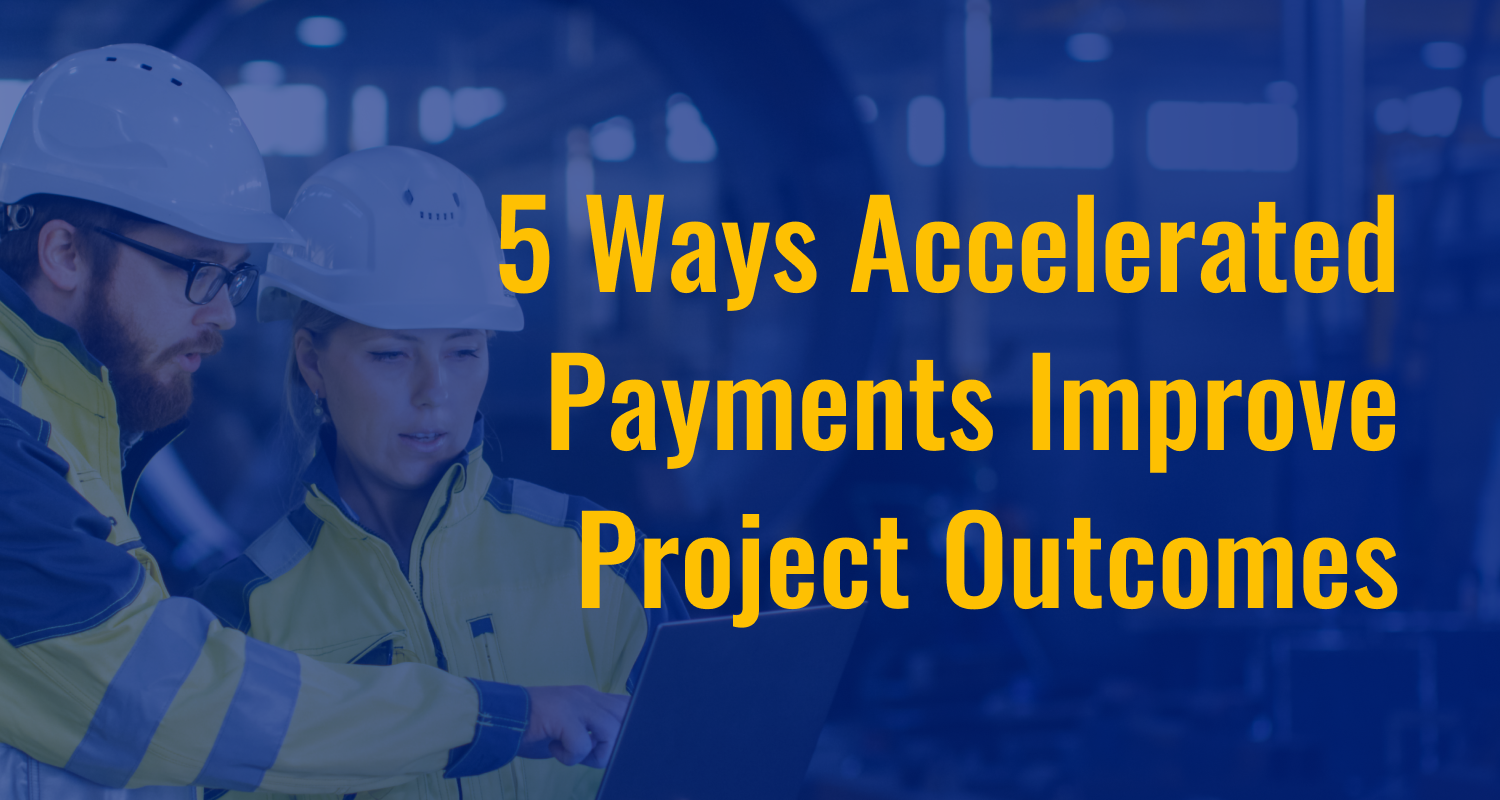Constrafor Revolutionizes Construction Procurement & Risk Management
Ever wondered how the construction industry could be more efficient? Starting our journey in 2019, we've had our eyes set on becoming the leading...
4 min read
Jerad Ferrell
:
Mar 13, 2023 6:58:28 PM

As a construction firm, preparing for a banking industry disruption can seem like a sudden, unexpected, and an outright daunting task. People often make costly decisions as a result of a rushed, reactionary approach.
Taking the time to plan proactively unequivocally protects your business and safeguards the livelihoods that your valued employees and their families have come to rely upon your business for. To avoid the impact of recent events similar to the Silicon Valley Bank and Signature Bank collapse from impacting day-to-day operations, contractors can follow these 8 critical steps to safeguard their business.
In times of financial uncertainty, having cash on hand can be the difference between surviving and going out of business. Cash reserves can help you weather the storm until the market stabilizes, and you can resume normal operations. Contractors should focus on building up their cash reserves to help protect against potential financial shocks.
During a financial banking crisis, local and regional banks are often the most vulnerable to collapse. Recent examples include the Silicon Valley Bank collapse and the Signature Bank collapse. Choosing to work with local and regional banks has its benefits in steady times but it can introduce new risks, as these smaller banks may not be able to sustain a run on the bank. It's important to carefully consider the risks associated with working with local and regional banks for both your banking and financing needs and to take steps to protect your business, such as diversifying your financial partnerships to minimize disruptions if one of the two were impacted.
During a banking disruption, it's essential to have a backup plan in case your banking partners are impacted. One way to do this is by diversifying your financing. Consider exploring alternative financing options like non-bank lines of credit, leasing, equipment financing, supply chain financing, or equity fundraising. By diversifying your financing, you can help reduce your reliance on any single financial partner and help ensure that your business has access to the capital it needs, even if your bank folded. It's important to keep in mind that you never know when the impact of a crisis will hit your banking partners or to what extent, so it's essential to be prepared with alternative financing options.
In addition to having quick access to cash, it's also important to position your company for liquidity on short notice. This may involve establishing relationships with alternative financing options like early payment strategies, which allows you to quickly access the cash you’ve earned up to 98% faster than traditional payment cycles. By positioning your company for liquidity on short notice, you can help ensure that your business is prepared for any unexpected financial disruptions that arise.
When choosing financial partners, it is essential to work with those who have experience in the construction industry. The construction industry has unique financial needs that differ from other industries. Partnering with a financial institution that understands the nuances of construction financing can help ensure that your business is positioned to weather a financial storm. There is simply no time to teach bankers and financiers about draw schedules and change orders during an unfolding crisis.
In the event of a financial crisis, access to long-term loans can be more challenging to come by. To ensure that your business is positioned to secure the best possible loans, it is essential to keep debts off your balance sheet. Absorbing additional traditional debt complicates your financial position when loans are suddenly scrutinized with greater restriction and lower approval rates. Instead, consider alternative financing options like factoring and supply chain financing to help preserve your borrowing capacity. Leverage opportunities to get cash in hand as fast as possible without impacting your long term options.
One way to position your company for financial stability during a crisis is to partner with a company like Constrafor. Constrafor is a financing platform designed specifically for the construction industry, and can help you access your cash within 48 hours instead of the 30-60 draw cycle for invoices being paid by General Contractors. By working with Constrafor, you can reduce your reliance on traditional banking partners and position your company for greater financial stability without impacting your balance sheet or reducing your bonding capacity.
Constrafor's EPP allows you to receive payment for your invoices within 48 hours, helping you improve your cash flow and safeguard your business against potential financial shocks. Best of all, Constrafor offers a free 30-day trial of EPP, so you can try it out with no risk and see the impact it can have on your business. By leveraging Constrafor's EPP, you can protect your business and position it for success, even in the face of a banking crisis.

Ever wondered how the construction industry could be more efficient? Starting our journey in 2019, we've had our eyes set on becoming the leading...

As a contractor, you know that cash flow is the lifeblood of your business. However, waiting for payment from your general contractors who are...

Strong relationships between General Contractors and trade partners can help create a mutually beneficial and productive partnership, ensuring the...